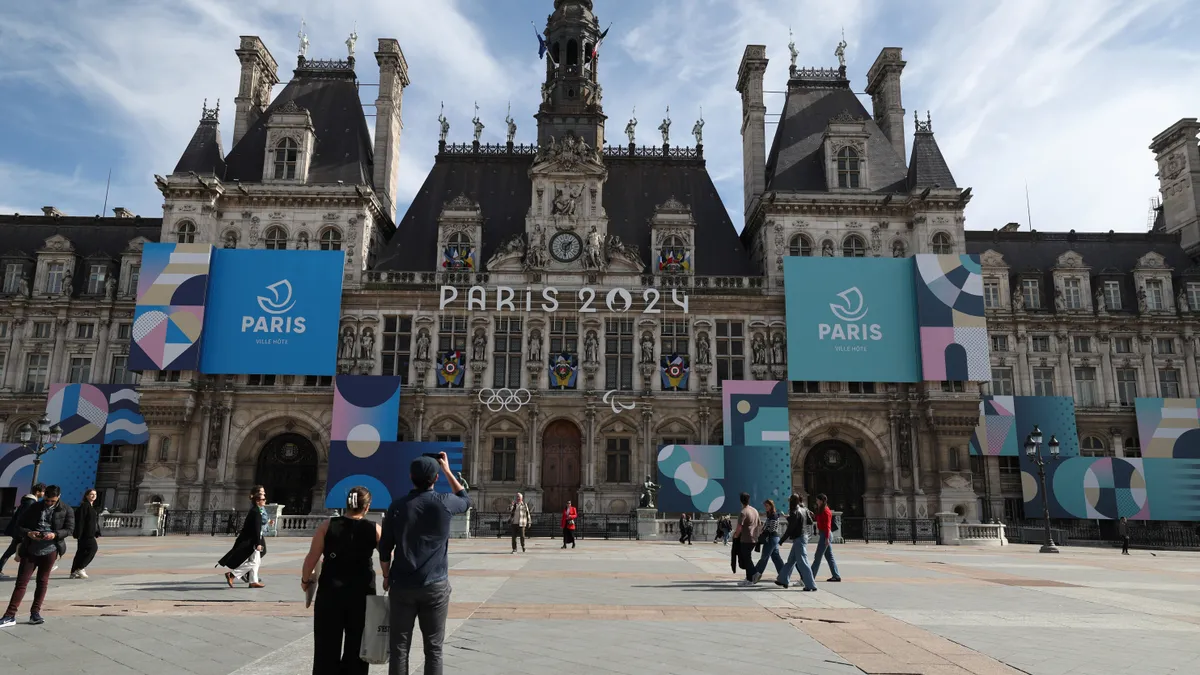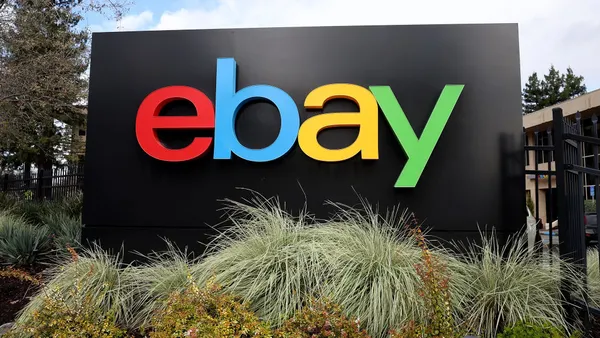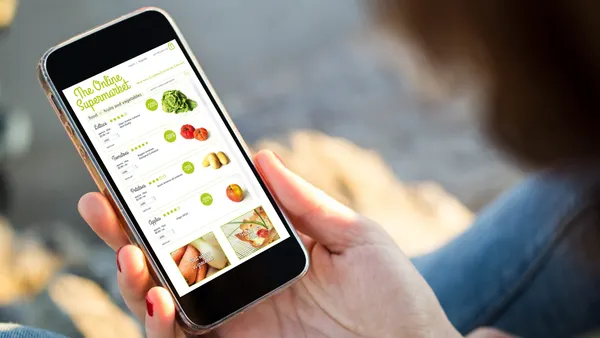The 2024 Olympic Games blew its engagement targets out of the water in the first week of the Paris games, surpassing Tokyo’s engagement metrics in just five days, the International Olympic Committee announced Wednesday.
The IOC credits a new customer data platform, created in unison with Converge by Deloitte for Sports, for the digital transformation. The customer data platform — or in this case, fan data platform — allowed the IOC to segment audiences and personalize content.
“When I give you a personalized experience, you engage more,” Michelle McGuire Christian, chief commercial officer and principal of Converge by Deloitte, told CX Dive.
The numbers back it up. The IOC registered 32 million fans in its database and achieved 8.5 billion social media engagements in the first week alone.
Three years ago, the Olympic committee didn’t have the customer data platform to back up those gains. The Tokyo games had information about their fans and an existing data lake, but it wasn’t connected on the back end and integrated across platforms. The resulting issue was Olympic outreach was generic.
“You might get an email from them about a sport that you may or may not care about,” Christian said.
The other problem? The Olympics were able to engage audiences during the Summer and Winter Games, but in between games, engagement plummeted, and the IOC had to start fresh engaging audiences.
“We need to keep audiences engaged throughout the whole period between games, from flame to flame,” Leandro Larrosa, IOC director of digital engagement and marketing, said during a LinkedIn panel Wednesday.
Unveiling the IOC’s customer data platform
The IOC began its digital transformation in 2020 by consolidating its website and social media handles into one, and making the IOC the official Olympics site and app. Two years ago, it brought on Deloitte as an official Olympic sponsor and digital transformation partner to refresh its strategy.
Together with the IOC’s digital engagement team, Deloitte spent two years defining and implementing the strategy of the CDP. The IOC rolled out the CDP in February for the Winter Youth Olympic Games in Gangwon, South Korea, and used it for the first time for the Paris Olympics.
The CDP acts as a landing page for fan information. That information is gathered as first-party data when a fan sets up an Olympic ID via Olympics.com, the Olympic app or a sponsor and is compliant with the European Union’s General Data Protection Regulation, Christian said.
“What a CDP does effectively is it enables you to combine the information, put data science, AI-machine learning on top of it in order to create audiences and serve those audiences the content that they care about. And that content is personalized to you as the fan,” Christian.
The tool can gather information based on interest in sports, countries or athletes as well as viewing mode — whether that's in-person, cable or streaming.
“Are you a fan of soccer/football? Are you a fan of Simone Biles? Are you a fan of Team USA? All of that information looks a little different when I send you a message. And it looks different if I send you a message via the app or I send it to you via SMS or I send it to you via email,” Christian said. “My tone of voice is different. My approach to you in terms of ‘tune in now’ versus ‘stream it live on Peacock,’ is very different than it was back at those games in Beijing or Tokyo.”
Segmenting audiences
With generative AI, the platform can take all of that individual data and engagement strategies to create hundreds of thousands different, personalized messages, informing fans about events happening of interest to them. But these segmentations also avoid pigeon-holing fans.
“The power of data science, generative AI-machine learning, is the machine knows that you can be a member of as many cohorts as you have the highest propensity to engage,” Christian said.
During the LinkedIn panel Wednesday, Larrosa also stressed the bigger picture the CDP was able to provide.
“Now with the CDP that we developed, we have concrete data we can analyze,” Larrosa said during the panel. “One important thing we have done is this segmentation of our audience. So now we know why people connect to us.”
The IOC identified four broad categories of why fans connect: performance, inspiration, community and entertainment. “So now we know this, thanks to the work we’ve done together, we can create the right content for the right people,” Larrosa said.
Those findings help inform future digital engagement strategies for the 2026 Milan Winter Games and 2028 Los Angeles Summer Games, he said.












